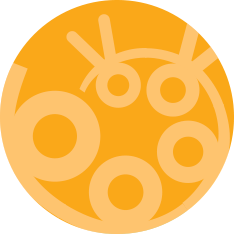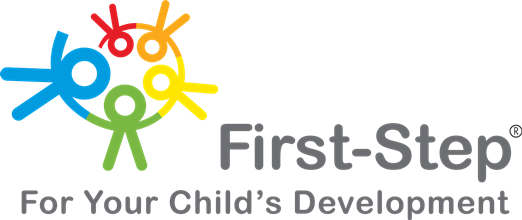
1 year olds and over
First Step Workshops – From 1 year olds and over1 year olds and over
Improving walking and getting ready for nursery-school
These workshops are divided into two separate groups:
- children who already stand, but sometime use the walls to move around and don’t walk independently.
- children who walk completely independently.
At this stage, workshops provide parents with a space for thorough, challenging work on movement with children, and also answers questions on developmental difficulties and problems that are only identifiable at this age.
Who needs developmental support after one year?
We believe that every child actually needs developmental support, from age one to two. It’s more customary to take children at this age to a play area (like Gymboree). While the play area sets important challenges that offer stimuli unavailable at home, babies bring and use their movement habits.
At First Step, though, we provide kids with a challenging environment and an array of built-in stimuli that require them to acquire new skills, and better movement habits. In this way, they develop the quality of their movement and senses to the utmost.
What happens at workshops for 1-2 year olds?
At the workshop, toddlers enjoy a challenging activity-intensive environment, where they work with their parents – and independently, too.
The instructor tests the child’s learning skills, looks at the movement habits s/he has acquired in previous stages, and identifies areas requiring repeated or deeper learning. In tandem, the instructor suggests exercises that help parents continue enjoying the sensory-motor encounter with their child at home.
Which delays and problems are typical at this stage?
It’s not easy for non-professionals to identify development delays that characterize this stage – things that seem “normative” to those around us – but actually hint at a delay or problem liable to surface in later years – such as when the child learns to write, to play with a ball etc.
A 14-month-old boy came to one of our workshops. He already stood, and was starting to walk helped by objects: a child who was apparently developing properly.
At the workshop we noticed his tendency to stay close to the walls, and his too-strong grasp. In behavioral terms, he was very close to his mother, and it was difficult for him to leave her and start activity. We also identified a problem in his deep sensory system; he recoiled from deep contact and was alarmed by noises, and as a result a problem had been created in his balance system, because he had not been sufficiently moved as a baby.
The problems in the sensory and motor aspects were intensified by the mother’s behavior; she hovered over the boy, with unnecessary cries of “Careful!”. The outcome was a child who experienced the world as a dangerous place – both inwardly (he had poor balance and difficulties identifying his place in space) and outwardly (mother sees the world as dangerous – otherwise she wouldn’t have to warn him).
Diagnosing the problem helped the mother make a major behavioral change. We gave her exercises aimed at boosting the deep sensory system (responsible, among others, for the child’s capacity to identify and use his body’s organs) plus exercises to strengthen his balance.
All of this was in a fun atmosphere, without an obsessive atmosphere. By the end of the workshop, the boy was walking confidently and freely, and taking on more and more challenging activities…Later we received a letter from his mother, stating “At first I didn’t understand where you saw a problem, and it actually irritated me. After all, Roy’s a regular kid, whose development is reasonable. But during the sessions and after some one-on-one talks with the instructor, I could see Roy was really afraid of new things, tense, doing everything in a rigid way. The workshop helped us both toward important changes. And I feel I’ve given him a lifetime gift.”
Links between the sensory-motor system and the development of thought & language
Our society tends to admire – maybe excessively– thought and language skills. Clearly these skills are very useful for contemporary people at work and in life, but over-admiration of them helps us forget that they have much deeper roots – in our senses and movement.
Think about how a child learns what a banana is – perhaps he’ll touch a banana on the table, squeeze it, or see his mother slicing a banana, and saying “Just a minute, you’ll get a banana”. Initially, he doesn’t know that the object is a banana, but the combination of his system of senses – sight, hearing, touch, taste – teaches him to see the link.
Jean-Jacques Piaget, the renowned Swiss researcher into children’s cognitive development, maintained that the closer language acquisition is to movement and the senses – the deeper and more correct the acquisition will be.
At First-Step we teach parents to work with the correct principles of language acquisition, allowing children to properly develop those skills.
The more experience babies have of movement,
the better their language skills.
How do young children cope with difficulty?
As adults – what do we do when things get tough? Do we look for help at once, or try and solve the problem? Do we give up, or seek a work-around solution?
At First Step workshops parents often say that the class is “difficult for the child”. It happens because the workshop has been structured to simulate several types of intelligence in the children: language – but also movement in space; stimulus and challenge for thinking – but also stimuli for the sensory system.
At our workshops, babies and toddlers cope with stimuli that “harm” incomplete systems, that have not fully developed. Some cope with difficulties in feelings of fear and anxiety.
The workshop sessions are aimed at raising difficulties to the surface and enabling better coping with them. Soon the children will enter a new environment – nursery-school or kindergarten – where they will meet those experiences and others. The workshop provides an opportunity to conduct that experiential meeting in a supportive surrounding – to prepare the children for future stages in the best way possible.
Independent behavior
We’ve learnt from experience that the greater motoric independence a child has – the more he is capable of independent behavior – and mature enough for separation, new experiences, and challenging encounters outside home.
The workshop furnishes parents with tools to reinforce motor independence. In turn, this helps infants cope better in kindergarten and respond better to what’s required of them there. Throughout the sessions, the instructor replies to questions in behavioral areas and helps parents put in place the emotional infrastructure needed toward the future.
Fine motorics
At this age children make substantial usage of fine motorics – learning to eat unassisted, to play, first attempts at drawing. It’s important to know that fine motoric development is connected to the full and high-quality realization of the motoric and sensory processes up to this stage.
To achieve outstanding abilities – we recommend reinforcing the quality of general movement in space.
